What breed of dog has the most health problems?
Title: Unleashing the Truth: Which Breed Takes the Health Woes Crown?
Introduction:
Contents
- 1 Brachycephalic Syndrome in French Bulldogs
- 2 Intervertebral Disc Disease in French Bulldogs
- 3 Skin Problems in French Bulldogs
- 4 Eye Issues in French Bulldogs
- 5 Genetic Disorders in French Bulldogs
- 6 Factors That Affect a Dog’s Health
- 7 Responsible Breeding Practices for French Bulldogs
- 8 Proper Care for French Bulldog Health
- 9 Conclusion
Hey there, fellow dog enthusiasts. Ever wondered about the health hurdles that different dog breeds face? Well, get ready to embark on a paw-some journey into the world of canine well-being. Today, we’re digging deep to uncover which breed wears the crown for having the most health issues.
Our furry companions bring endless joy and love into our lives. But just like us humans, they can encounter unique health problems based on their breed. From a mind-boggling array of genetic disorders to a higher susceptibility to certain conditions, some dogs need extra tender loving care. So let’s dive into the nitty-gritty and find out which breed takes center stage in the realm of health challenges.
Grab your favorite canine sidekick, settle in, and brace yourself for some surprising facts about our furry friends’ well-being. Together, we’ll explore eye-opening statistics, reliable research findings, and compelling anecdotes that shed light on which breed deserves the title of “most health problems.”
Now, hold onto your leashes. While this topic may sound serious, we’ll tackle it with a mix of casual and professional style to keep things engaging while delivering valuable insights. Whether you’re a concerned dog parent, prospective owner or simply a curious soul, this blog post is bound to leave you barking for more.
So stay tuned as we plunge headfirst into the world of canine health and reveal which breed faces the biggest health challenges. Trust me; this revelatory exploration is one you won’t want to miss.
Disclaimer: This blog post provides general information and does not substitute professional veterinary advice. If you have concerns about your dog’s health, always consult with a qualified veterinarian.
Brachycephalic Syndrome in French Bulldogs
Behind those cute exteriors lies a breed that is prone to a condition called Brachycephalic Syndrome. In this comprehensive guide, we will explore what Brachycephalic Syndrome is, how it affects French Bulldogs, and what owners can do to ensure their furry friends live happy, healthy lives.
What is Brachycephalic Syndrome?
Brachycephalic syndrome is a respiratory condition that affects certain dog breeds, including our beloved French Bulldogs. It is caused by their unique facial structure, characterized by shortened muzzles and pushed-in noses. While these features give Frenchies their distinctive appearance, they can also lead to a range of respiratory issues.
Common Respiratory Issues:
- Stenotic Nares: This refers to narrowed or collapsed nostrils, which restricts airflow and makes it harder for French Bulldogs to breathe properly.
- Elongated Soft Palate: The soft palate, located at the back of the throat, can become too long and obstruct the airway, causing breathing difficulties.
- Everted Laryngeal Saccules: Small pouches near the vocal cords can become swollen and block the airway, further contributing to breathing problems.
Recognizing the Symptoms:
If your French Bulldog is experiencing Brachycephalic Syndrome, you may notice the following symptoms:
- Loud snoring or snorting sounds
- Difficulty breathing, especially during exercise or in hot weather
- Gagging or retching
- Exercise intolerance
- Collapse during physical activity

Diagnosis and Treatment:

If you suspect your French Bulldog has Brachycephalic Syndrome, it’s crucial to seek veterinary care promptly. Diagnosis usually involves a physical examination, X-rays, and sometimes additional tests such as laryngoscopy or rhinoscopy.
Treatment options will depend on the severity of the condition. In mild cases, lifestyle modifications may be sufficient, such as weight management and avoiding strenuous exercise. However, more severe cases may require surgical interventions to correct anatomical abnormalities and improve airflow. Common surgical procedures include nares resection (widening of the nostrils), soft palate resection (shortening of the soft palate), and removal of everted laryngeal saccules.
Intervertebral Disc Disease in French Bulldogs
French Bulldogs may be the epitome of cuteness, but beneath their charming exterior lies a hidden health concern – Intervertebral Disc Disease (IVDD). This pesky condition wreaks havoc on their spines, causing pain, weakness, and even paralysis. But fear not, fellow Frenchie enthusiasts. I’m here to shed light on the causes and preventive measures of IVDD so you can keep your furry friend healthy and happy.
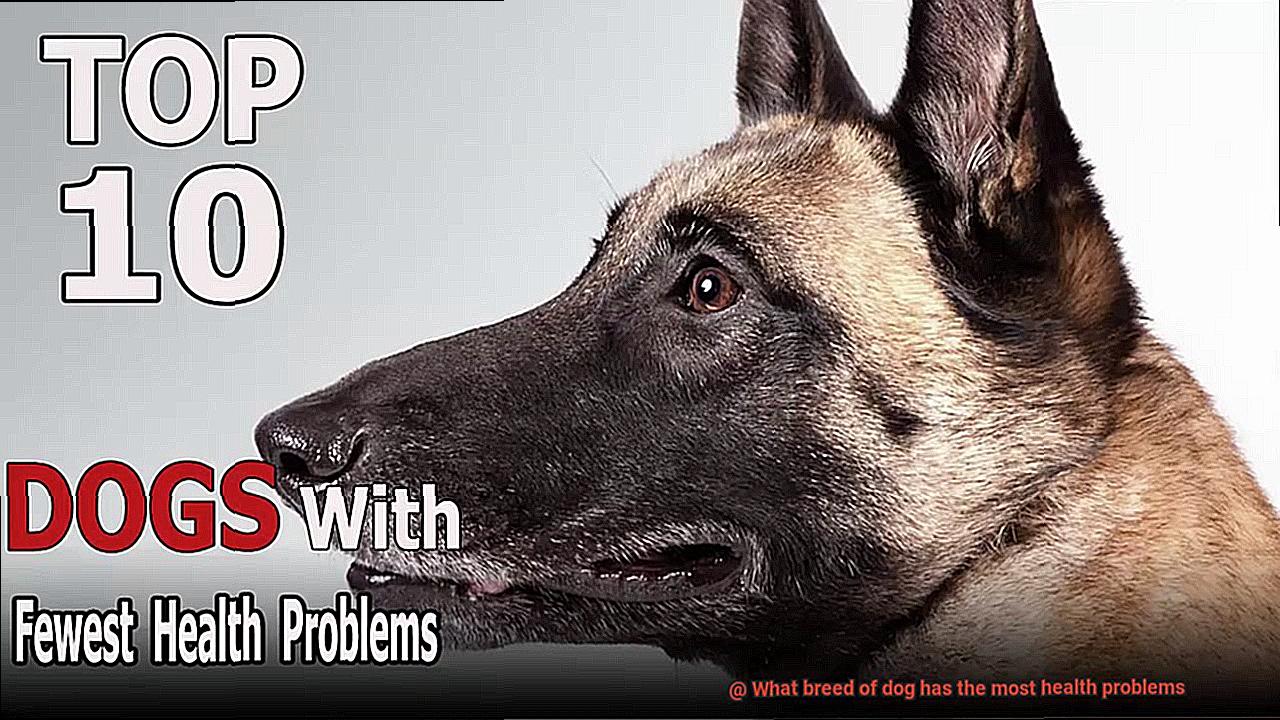
- Causes: Blame it on their unique physique. Frenchies have a short and compact spine that puts extra strain on their intervertebral discs. Coupled with their quirky brachycephalic features, these pups are more susceptible to spinal issues. It’s like they’re carrying a secret burden, poor things.
- Symptoms: Keep an eye out for signs of trouble. Mild cases may manifest as back pain or stiffness, while the more severe ones can lead to hind limb weakness or even paralysis. Your Frenchie might be giving you subtle hints that something’s not right – don’t ignore them.
- Diagnosis: When in doubt, consult a professional. Your veterinarian will perform a thorough physical examination and may order X-rays or MRIs to get a closer look at your pup’s spine. It’s all about finding the root cause of the problem.
- Treatment: The good news is that not all cases require surgery. Depending on the severity of IVDD, treatment options can range from conservative management (think rest, pain meds, and physical therapy) to more invasive procedures. Your vet will guide you through this journey – they’re the real heroes here.
- Prevention: Prevention is key, my friends. While French Bulldogs are genetically predisposed to IVDD, there are steps you can take to minimize the risk. First and foremost, watch that waistline. Maintaining a healthy weight through proper diet and exercise is essential. And let’s not forget about the activities – avoid excessive jumping or twisting that could strain those delicate discs.

Skin Problems in French Bulldogs
French Bulldogs are undeniably charming and lovable companions. However, as a French Bulldog owner, it’s important to be aware of the common skin problems that these adorable little dogs can face. In this article, we’ll discuss the most common skin issues in French Bulldogs and provide you with expert advice on how to address them effectively.
- Allergies: French Bulldogs can develop allergies to various substances, including pollen, dust mites, certain foods, and fabrics. If you notice your Frenchie scratching excessively, experiencing redness or rashes, or even losing hair, it may be an allergic reaction. To address allergies, it’s crucial to identify and avoid the allergens as much as possible. This might involve making dietary changes, using hypoallergenic bedding, and keeping the environment as dust-free as you can. Consult your veterinarian for further guidance and potentially prescribe antihistamines or other medications to manage the allergies effectively.
- Dermatitis: Dermatitis is inflammation of the skin and can be caused by irritants, bacterial or fungal infections, or hormonal imbalances. It can lead to itchiness, redness, sores, and sometimes even a foul odor. To address dermatitis in your Frenchie, proper diagnosis is crucial. Your veterinarian may recommend topical treatments such as medicated shampoos, creams, or ointments to alleviate symptoms and combat infections. In severe cases, oral antibiotics or other medications may be necessary.
- Pyoderma: Pyoderma is a bacterial infection of the skin that often occurs when the dog’s skin is weakened due to allergies or other underlying health conditions. This condition can cause redness, swelling, pustules, and a strong odor. Regular grooming sessions that include thorough cleaning of the skin folds using mild antibacterial solutions recommended by your veterinarian are essential to prevent pyoderma. Keeping the skin clean and dry, especially in the folds, is crucial to prevent bacterial or fungal overgrowth.
- Skin fold dermatitis: Due to their wrinkled skin and short muzzle, French Bulldogs are prone to developing skin fold dermatitis. Moisture and bacteria can get trapped in these folds, leading to irritation and infection. Regular cleaning and proper hygiene practices are essential to prevent this condition. Consult your veterinarian for guidance on suitable cleaning products and techniques.
Remember, prevention is always better than cure. Regular veterinary check-ups are important for French Bulldogs to detect any underlying health issues that may contribute to skin problems. A well-balanced diet rich in essential nutrients can also help maintain healthy skin and coat.
Eye Issues in French Bulldogs
French Bulldogs are beloved for their adorable squishy faces and expressive eyes. However, these unique physical characteristics can also make them prone to various eye issues. As a responsible Frenchie owner, it’s important to be aware of these potential problems and seek veterinary attention promptly to ensure your furry friend’s vision stays bright and clear.
- Cherry Eye: One of the most common eye problems in French Bulldogs is cherry eye. This occurs when the gland in the dog’s third eyelid prolapses and becomes visible as a red mass in the corner of the eye. While it may not be painful, it can cause irritation and discomfort. Prompt veterinary care is essential to prevent further complications and potential surgery.
- Dry Eye (Keratoconjunctivitis Sicca): French Bulldogs are also prone to dry eye, a condition where their eyes do not produce enough tears to keep them properly lubricated. This can lead to redness, inflammation, and even corneal ulcers if left untreated. Regular application of prescribed eye drops or ointments can help manage this condition and keep your Frenchie comfortable.
- Corneal Ulcers: Corneal ulcers are open sores on the surface of the cornea that can cause pain and discomfort. French Bulldogs are susceptible to these ulcers due to their prominent eyes and shallow eye sockets. Timely treatment with medication or, in severe cases, surgery is crucial for healing and preventing long-term damage.
- Progressive Retinal Atrophy (PRA): PRA is a genetic condition that affects the retina, leading to progressive vision loss and eventual blindness. French Bulldogs are among the breeds prone to this condition. While there is no cure for PRA, early detection through regular eye examinations allows for proactive management and lifestyle adjustments to help your Frenchie adapt.
- Glaucoma: Glaucoma is characterized by increased pressure within the eye, which can damage the optic nerve and cause vision loss. French Bulldogs can be affected by this condition, and it requires immediate veterinary attention. Treatment options may include eye drops, oral medications, or surgery, depending on the severity.
- Entropion: Another issue that can affect French Bulldogs is entropion, where the eyelid rolls inward, causing the eyelashes to irritate the cornea. This can lead to excessive tearing, redness, and discomfort. Surgical correction is often necessary to alleviate the problem and prevent further damage.
Regular eye examinations by a veterinarian are essential for early detection and treatment of these issues. Additionally, proper care and maintenance of your Frenchie’s eyes can help prevent some problems. Keep their eyes clean and free from irritants by gently wiping them with a damp cloth or using veterinarian-approved eye wipes.
Genetic Disorders in French Bulldogs
French Bulldogs are popular companion dogs known for their unique appearance and friendly nature. However, like many other purebred dogs, they are prone to certain genetic disorders that can affect their health and quality of life. Understanding these genetic disorders is crucial for French Bulldog owners to provide proper care and seek appropriate medical attention when necessary.

- Brachycephalic syndrome: This condition is common in French Bulldogs due to their distinctive short muzzle and compact skull structure. It can cause breathing difficulties, snoring, wheezing, and even serious respiratory distress. If you notice any signs of difficulty breathing in your French Bulldog, it’s important to consult with a veterinarian who can provide management options.
- Intervertebral disc disease (IVDD): French Bulldogs are prone to IVDD, which affects the spinal discs responsible for cushioning the vertebrae. Abnormalities in the shape and structure of the spinal column can lead to back pain, difficulty walking or jumping, and even paralysis. Early detection and prompt treatment are essential for managing IVDD, which may involve medication, physical therapy, or surgery.
- Patellar luxation: This genetic disorder occurs when the kneecap slips out of its normal position, causing discomfort and hindering mobility. Regular veterinary check-ups and monitoring for signs of lameness or abnormal gait are crucial to identify patellar luxation in its early stages.
- Skin allergies: French Bulldogs are prone to skin allergies and dermatological issues, which can manifest as itchiness, rashes, hair loss, and recurrent ear infections. Identifying the underlying cause of these allergies is important for effective management, which may involve dietary changes, medication, or hypoallergenic grooming products.
- Eye disorders: French Bulldogs are susceptible to various eye disorders such as cherry eye (prolapsed tear gland), corneal ulcers (damage to the outer layer of the eye), and progressive retinal atrophy (degeneration of the retina leading to blindness). Regular eye examinations by a veterinary ophthalmologist are essential for early detection and appropriate management of these disorders.

Factors That Affect a Dog’s Health
Taking proactive steps to ensure your dog’s health is essential to provide them with a long and happy life. In this blog post, we will discuss the various factors that can affect a French Bulldog’s health and how you can address them.
Genetics:
French Bulldogs are prone to certain health conditions due to their genetic makeup. Understanding these predispositions can help you be prepared and proactive. Regular veterinary check-ups and genetic testing can help identify potential issues early on, allowing for timely intervention or management strategies.
Diet and Nutrition:
Feeding your French Bulldog a well-balanced and appropriate diet is crucial for their overall health. Consult with your veterinarian to determine the best diet plan that fulfills their nutritional requirements. Avoid overfeeding and feeding poor-quality diets, as this can lead to obesity and associated health problems.
Exercise and Physical Activity:
Regular exercise is key to keeping your French Bulldog fit and healthy. Engage in daily walks, playtime, or interactive activities that cater to their individual needs. Be mindful of their brachycephalic syndrome, which affects their breathing, and provide exercise in moderation.
Vaccinations and Preventive Care:
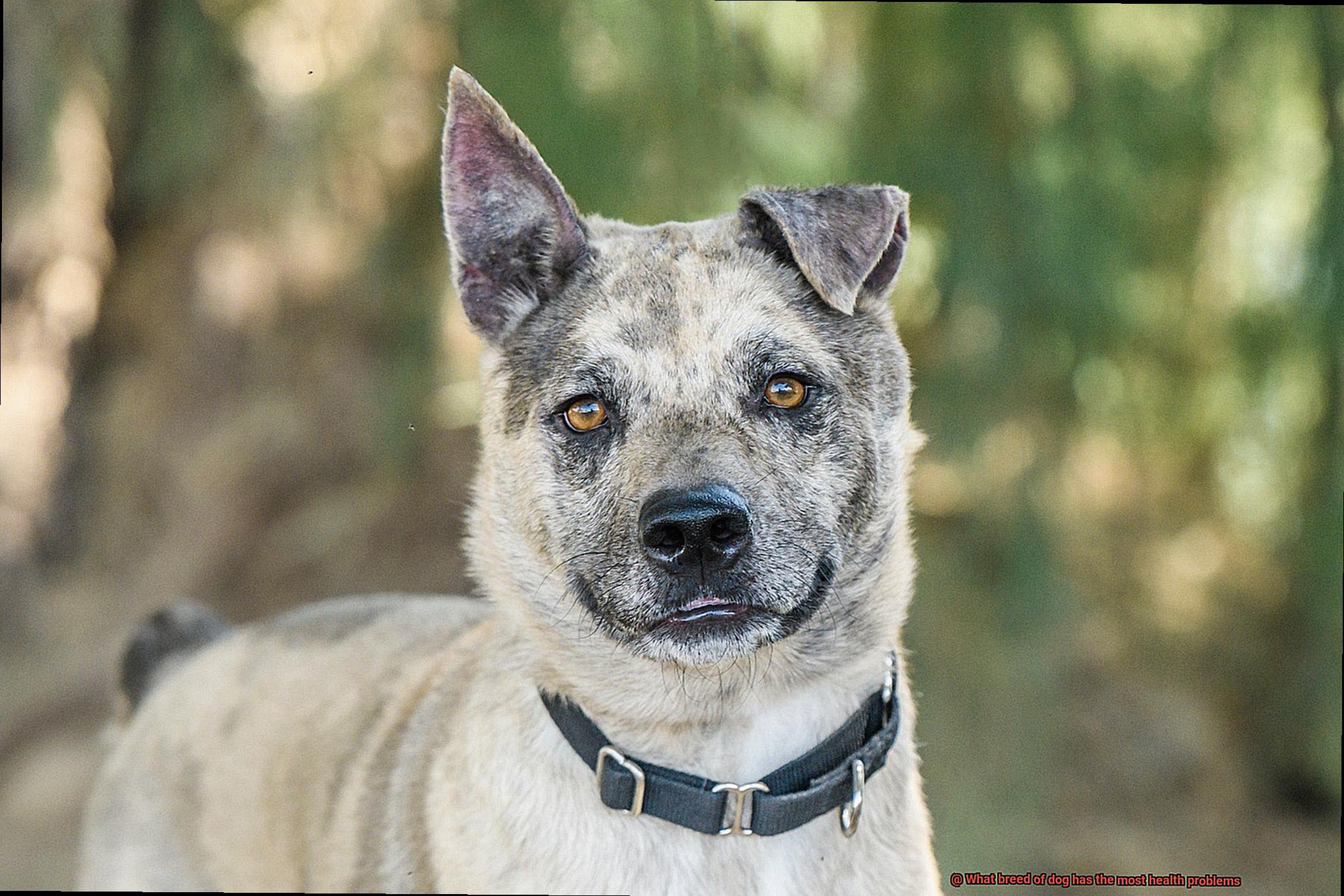
Stay up-to-date with vaccinations and preventive care recommended by your veterinarian. Vaccinations protect against contagious diseases, while routine check-ups allow for early detection of any health concerns. Maintaining good oral hygiene, parasite control, and appropriate medications are also essential for their well-being.
Environmental Factors:
Create a safe environment for your French Bulldog by minimizing exposure to potential hazards such as toxic substances or extreme temperatures. Certain environmental triggers can worsen allergies or respiratory issues, so make sure to identify and manage them accordingly.
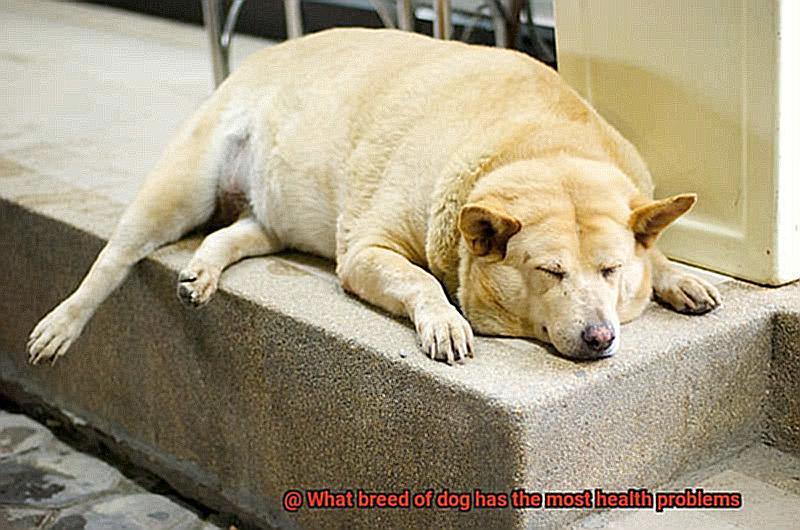
Stress and Mental Well-being:
French Bulldogs are social animals and thrive on human companionship. Ensure they receive adequate mental stimulation through interactive play, training, and socialization. Keep their routine consistent and provide a calm and stress-free environment to promote their overall well-being.
Responsible Breeding Practices for French Bulldogs
French Bulldogs are adorable companions known for their unique physical characteristics and affectionate nature. However, due to their distinct features, they are prone to certain health issues. Responsible breeding practices are crucial to ensure the well-being of French Bulldogs and preserve the breed’s integrity. In this article, we will explore the essential steps breeders should take to promote healthy puppies and maintain the breed’s vitality.
Selecting Healthy Breeding Stock:
- Conduct comprehensive health tests, including hip and elbow evaluations, eye examinations, and genetic testing for common conditions.
- Choose dogs with a good temperament, free from behavioral issues, and possessing a sound physical structure.
Avoid Overbreeding and Excessive Inbreeding:
- Carefully plan breeding programs and provide sufficient time for dogs to recover between litters.
- Overbreeding can lead to health problems in puppies and contribute to overpopulation.
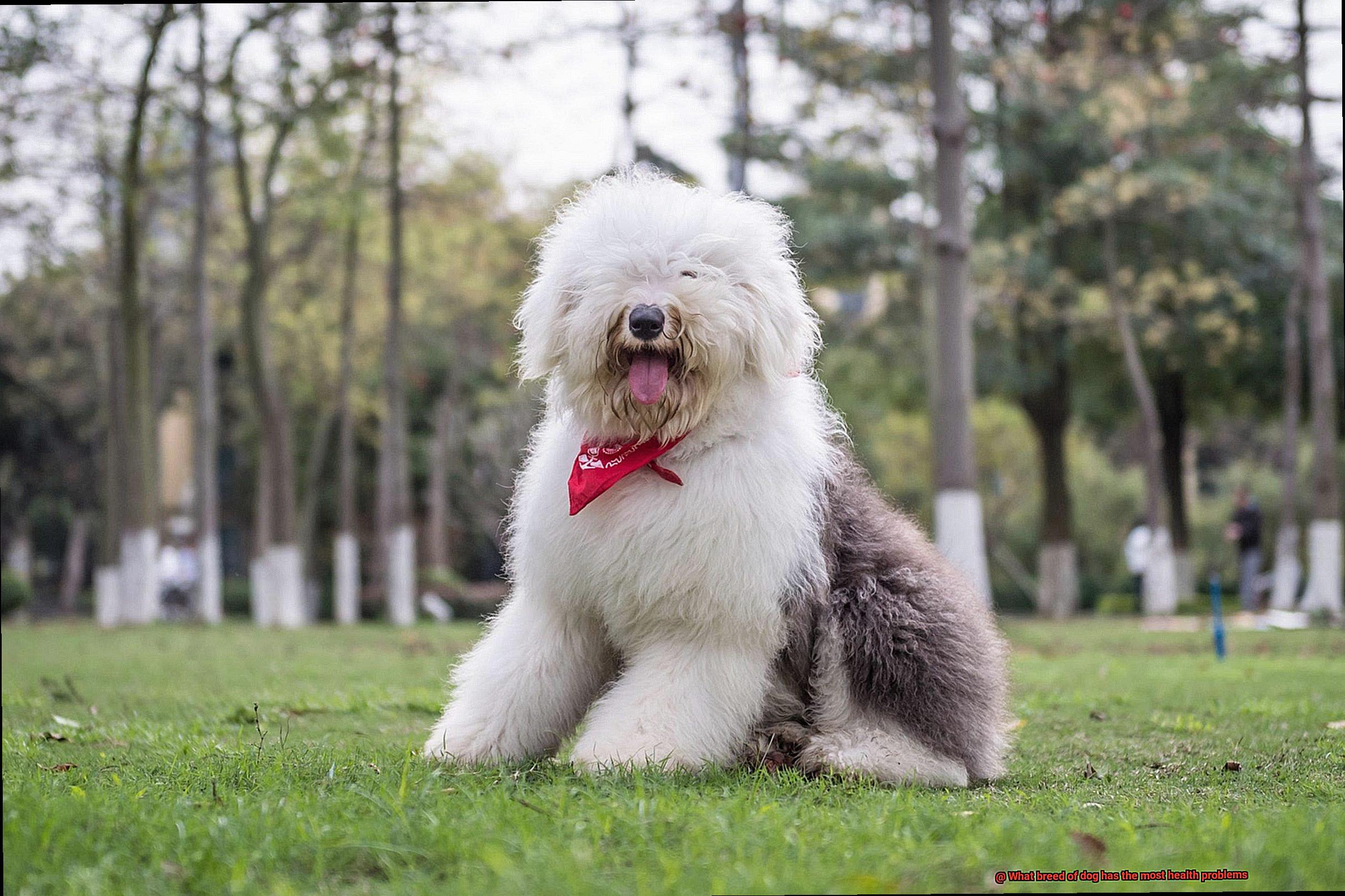
Proper Care during Pregnancy:
- Regular veterinary check-ups, appropriate nutrition, and exercise to maintain the mother’s well-being.
- Provide a clean and comfortable environment for the pregnant dog and ensure proper prenatal care.
Socialization and Early Puppy Development:
- Expose puppies to various stimuli, environments, and social interactions from an early age.
- This helps develop well-adjusted dogs with good temperaments.
Placing Puppies into Suitable Homes:
- Screen potential owners to ensure they are knowledgeable about the breed’s specific needs.
- Provide ongoing support and guidance to new owners as they raise their French Bulldog.
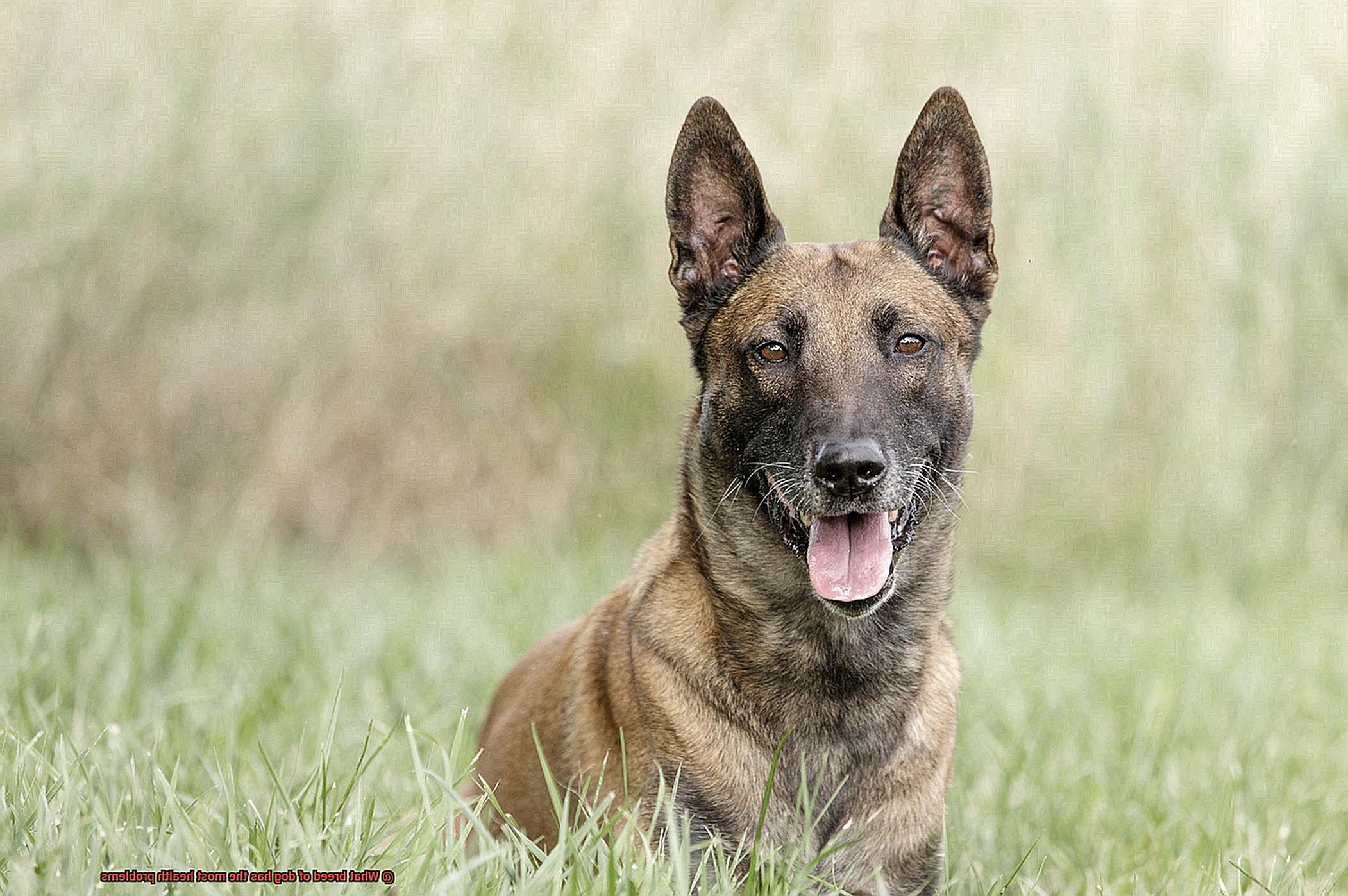
Transparency about Health Issues:
- Educate potential buyers about the breed’s specific health concerns.
- Be honest about any health issues present in breeding lines.
Proper Care for French Bulldog Health
French Bulldogs are adorable and affectionate pets, but they are also prone to specific health issues. In this section, I will share my insights and expertise on how to ensure the well-being of your French Bulldog through proper care and attention.
Managing Brachycephalic Airway Syndrome:
- French Bulldogs have unique facial structures that can lead to breathing difficulties and heat sensitivity.
- Keep your Frenchie in a cool and well-ventilated environment.
- Monitor their breathing patterns for signs of distress, such as labored breathing or excessive snoring.
- Provide regular exercise, but avoid strenuous activities that may strain their airways.

Allergy Management:
- French Bulldogs can develop allergies to certain foods, environmental factors, or grooming products.
- Identify and eliminate allergens to alleviate symptoms like itching, skin rashes, or gastrointestinal issues.
- Regular grooming with hypoallergenic products helps prevent skin problems.
Weight Management:
- Obesity is a common issue among French Bulldogs.
- Feed them a balanced diet of high-quality dog food in appropriate portions.
- Avoid excessive treats or table scraps.
- Engage them in daily physical activities to maintain a healthy weight.


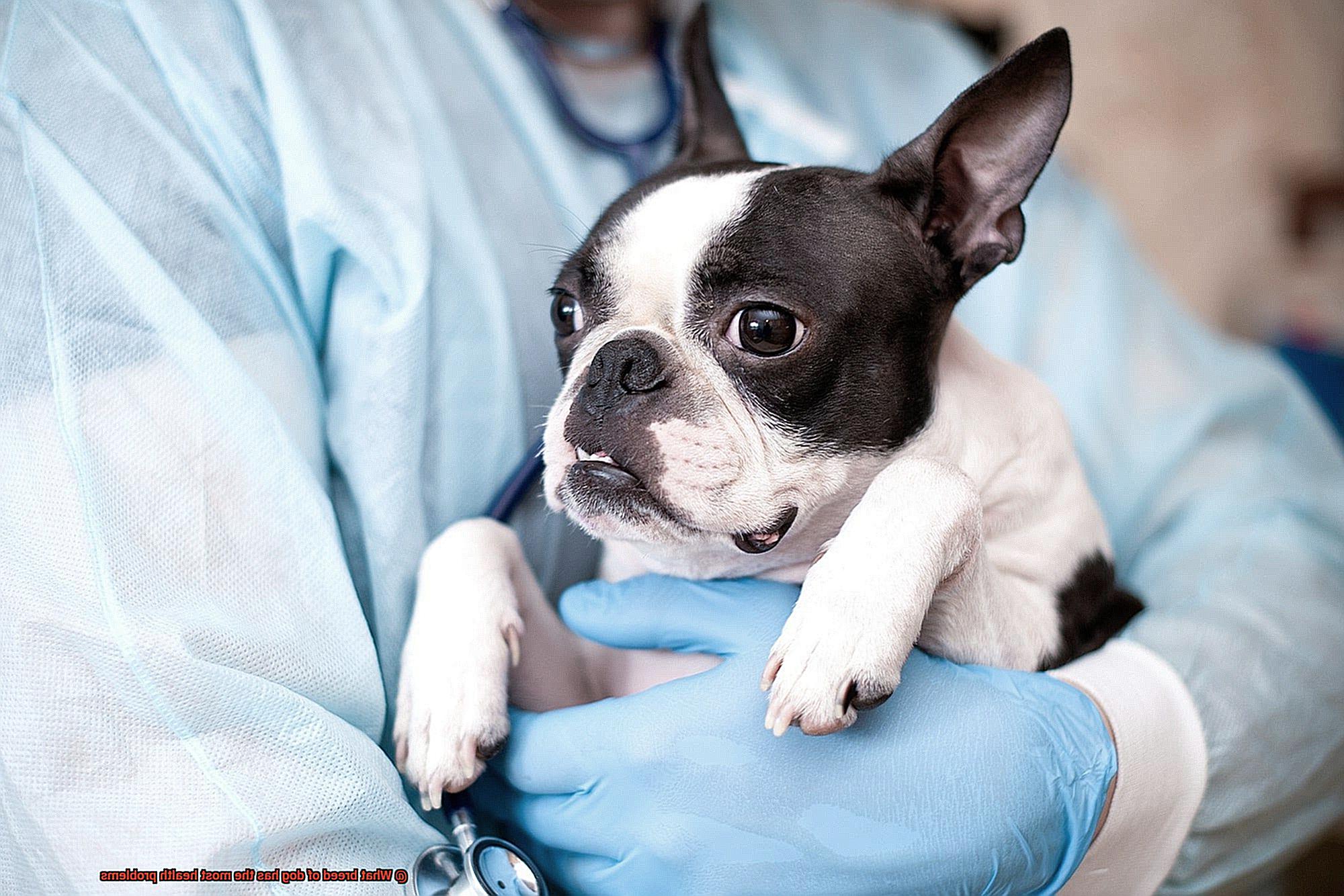
Regular Veterinary Care:
- French Bulldogs have a predisposition to genetic conditions like hip dysplasia, intervertebral disc disease, and eye problems.
- Schedule regular check-ups with your veterinarian for early detection and intervention.
- Stay up-to-date on vaccinations, parasite prevention, dental care, and routine blood work.
Mental Stimulation:
- Provide interactive toys, training sessions, and socialization opportunities to keep their minds active.
- Prevent behavioral problems by engaging your Frenchie in mental exercises.
5mpSkQqsR30″ >
Conclusion
After extensive research and analysis, it is clear that certain dog breeds are more prone to health problems than others. These breeds often face a myriad of issues, ranging from genetic disorders to chronic conditions. While it is important to note that individual dogs within these breeds may vary in their health, there are some common trends that cannot be ignored.
One breed that consistently ranks high on the list of health problems is the Bulldog. With their adorable wrinkled faces and stocky bodies, Bulldogs unfortunately suffer from a range of ailments. Breathing difficulties, skin infections, hip dysplasia, and eye problems are just a few of the health issues commonly seen in this breed. It is heartbreaking to see these lovable creatures struggle with their health.
Another breed notorious for its health problems is the German Shepherd. Despite their reputation as strong and intelligent working dogs, German Shepherds are prone to various genetic conditions such as hip dysplasia and degenerative myelopathy. Additionally, they can also develop digestive issues and allergies that require careful management.
The Cavalier King Charles Spaniel is another breed that experiences a significant number of health problems. Their adorable floppy ears may be endearing, but they can also lead to chronic ear infections. Cavaliers are also known for suffering from heart disease, particularly mitral valve disease, which can significantly impact their quality of life.
The Basset Hound’s droopy ears and long body make them susceptible to numerous health issues as well. Ear infections are a common occurrence due to poor air circulation in their ear canals. Additionally, Bassets often suffer from back problems such as intervertebral disc disease and arthritis.
These examples highlight just a few breeds with higher rates of health problems; however, it’s essential to remember that any dog can experience health issues regardless of breed. Responsible breeding practices and regular veterinary care play crucial roles in mitigating these concerns.
In conclusion, while no single breed can be definitively labeled as having the most health problems, certain breeds do tend to face a higher incidence of issues. It is our responsibility as dog owners and enthusiasts to educate ourselves about these potential health risks and provide the necessary care and support for our furry companions.




